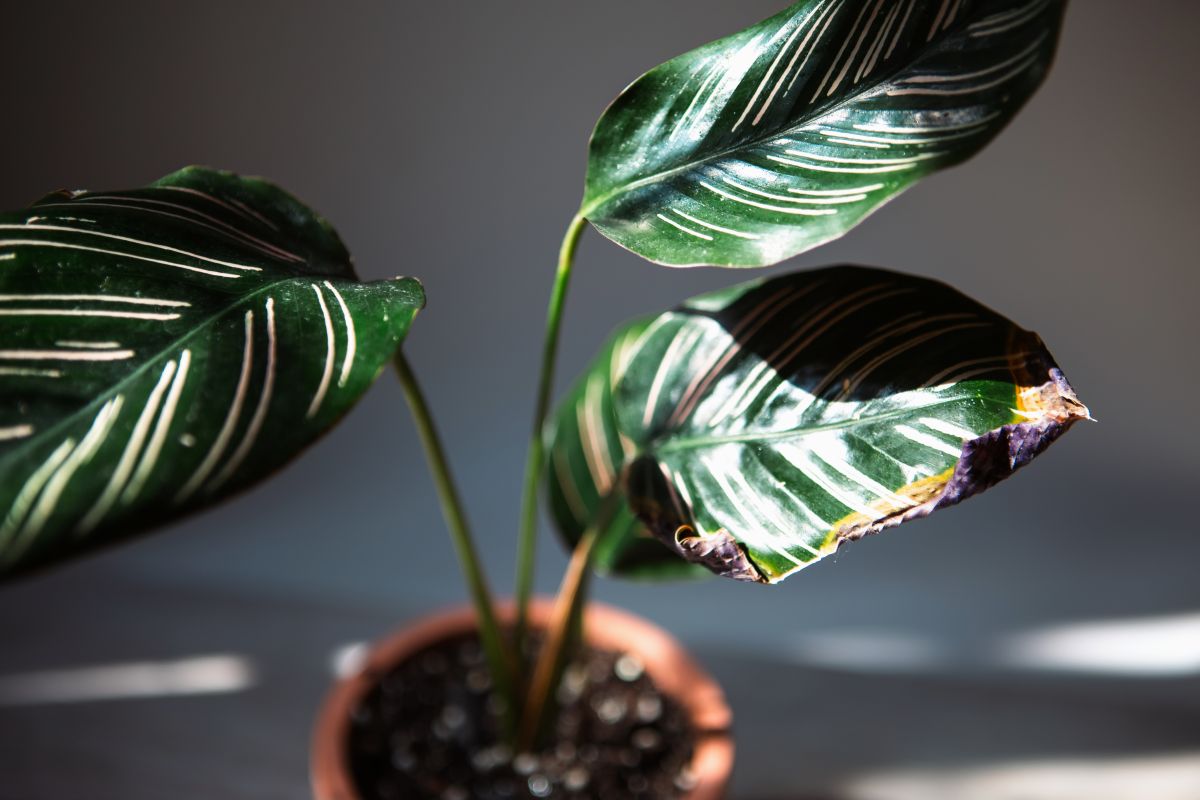Oncidium Orchids are popular members of the Orchidaceae family that are native regions of South and Central America including the Caribbeans.

They are epiphytic in nature and are often found growing on the bark of trees and can be used as ornamental plants for indoor spaces.
Oncidiums are known for their large pseudobulbs and long leaves which can reach a height of 2 feet. They also produce abundant pink, yellow or purple blooms that are modified and look ruffled, these ruffled flowers are the reason the plants are called “dancing lady orchids’.
| Botanical Name | Oncidium Spp |
| Common Names | Oncidium Orchid, Dancing lady orchid |
| Origin | Caribbean, South and Central America |
| Family | Orchidaceae |
| Plant Type | Epiphytic perennial flowering plant |
| Full Size | Ranges from 2 feet to 10 feet tall |
| Sun Exposure | Partial, indirect sunlight |
| Growth Media | Well-draining media |
Oncidium Orchid Types
There are tons of oncidium varieties being produced, this is because they are hybridized so it is easy to introduce new species. Some popular varieties are;
- Oncidium pulchellum
- Oncidium leucochilum
- Oncidium sarcodes
- Oncidium longipes
Caring for Oncidium Orchid
Oncidium orchids are easy to grow and care for, they are a bit more tolerant than most orchid types and would flourish under the right lighting, watering, temperature and humidity conditions.

Oncidium Light Requirements
Oncidiums are better grown in areas with sufficient access to bright and indirect sunlight, still, they are much more tolerant to direct sunlight than most orchids.
Prolonged exposure to direct sunlight does have its negative effects on the plants leaves, so it helps to filter the sun’s rays with a light curtain.
Place the potted plant in a room, close to an eastwards facing window where they can get access to the morning sunlight, you can then relocate them to a room with bright indirect sunlight during the mid day.
Oncidium orchids and Dendrobium orchids have similar lighting requirements.
Water Requirements for Oncidium Orchids
It is recommended that you water the Oncidium Orchid every 2 to 7 days, this varies depending on the species of the plant.
Avoid a wet growing media as it can open the plant to fungal and bacterial attacks, so it helps to maintain a moist media by letting it dry off a bit before watering.
When watering, ensure you use dechlorinated water that is of lukewarm temperature to avoid stress on the plant’s roots.
Soil Requirements for Oncidium Orchids
As epiphytic plants, Oncidiums don’t require regular soil mixes, opt for a bark-based medium instead when growing them in pots.
Ensure that your mix is well-draining, a little acidic, and should be able to hold in moisture for a while. You can achieve this with the addition of peat moss and perlite.
Temperature and Humidity Requirement for Oncidium Orchids

Orchid Oncidium has a higher tolerance for most climatic conditions and can be found growing in tropical regions. The temperature range should be from 55 degrees Fahrenheit to 85 degrees Fahrenheit.
Keep the humidity level between 40% to 60% and this could be achieved indoors with the use of a humidifier or by placing the plant next to a tray filled with pebbles and water.
Fertilizer Requirements for Oncidium Orchids
This should be done once every month in its growing season by using a slow-release fertilizer or an orchid-suitable fertilizer.
If the Oncidium Orchid species is large, it would require a 30-10-10 fertilizer, else you can use a 20-20-20 fertilizer.
Be sure to do thorough flushing of the plant with water to reduce the buildup of salts from fertilizer on the plant.
Propagating Oncidium Orchids
Oncidium Orchids can be propagated through two methods;
- Propagation by seed
- Propagation through by division
Repotting Requirements for Oncidium Orchids
Oncidium orchids do not require frequent repotting as they can grow for years without needing a new pot. Repot when it is necessary and ensure you use a bigger pot with sufficient drainage holes.
Pruning Oncidium Orchids
Pruning should be done after the Oncidium Orchid has finished flowering, to help promote the growth of new flowers.
Common Health Problems of Oncidium Orchids
- Root rot
- Scales
- Mealybugs
- Thrips
- Aphids
- Brown leaves
- Discolored leaves
- Black spots
Frequently Asked Questions
This species of the Oncidium genus produces blooms that last for about 4 weeks
Yes, Oncidium orchids are fast and easy to grow and care for.
A yellow-colored Oncidium leaf is normal and should not bother you.
Frequent repotting is not necessary as Oncidiums prefer being pot-bound.
Yes, regular watering should be done while oncidium orchids bloom.





